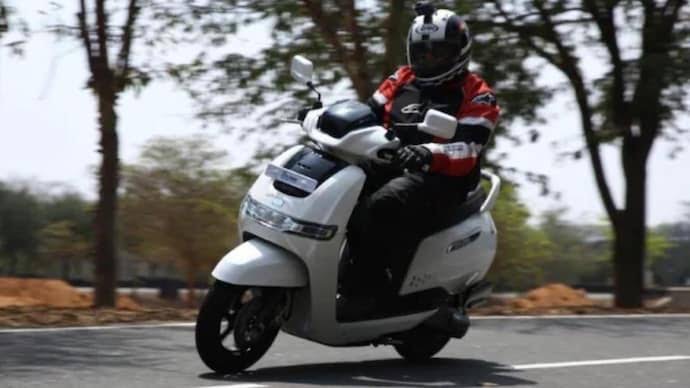The purchase will support TVS Motor’s growth in the worldwide EV 2-wheeler industry, the firm said in a statement to the BSE and NSE on Friday.

About the pact made by TVS IN GERMANY
A leading two and three-wheeler company, TVS motor company announced about its wholly-owned subsidiary TVS motors (TVSM Singapore) Pte Ltd has made an agreement to get electric vehicle-related technology and assets in Germany
According to the statement, VS Singapore will purchase the assets through its subsidiary BBT Vermogensverwaltungs GmbH, whose name is being considered for modification to Celerity Motor GmbH.
With over 600 engineers working in a dedicated vertical for the EV market, the organization has embraced centres of competency (COCs) and an agile working style. In 2021–2022 TVS sold more than 10,000 EVs.
SALES AND PRICING OF TVS
The company’s complete two- and three-wheeler sales record during the year ended March 2022, including international business, hiked by 8% to 33.10 lakh units from 30.52 lakh units during the 2020–21 fiscal year.
Currently, the company is selling the iQube electric scooter in India that comes at Rs 99,130 (on-road New Delhi) whereas in tvs iQube S is priced at Rs 1,04,123 (on-road, New Delhi)

Pic credits- TVS motors
The F77 electric motorcycle, which retails for between Rs 3.80 lakh and Rs 5.50 lakh (ex-showroom) in India, was recently introduced by EV start-up Ultraviolette with funding from TVS Motor Company.
Earlier this year, the new TVS iQube electric scooter was introduced in India. The upgraded model comes in two new varieties, S and ST, and offers an improved range, more performance, and more useful features. In order to provide charging and swap stations for EVs in India, TVS announced its agreement with Jio-bp earlier this year.
The motorcycle segment contributed 145,006 of the 263,642 total two-wheeler sales in November 2022, up from 257,863 in November 2021. Compared to the same month last year, when the bike category recorded 1,40,097 units, there has been a noticeable increase.
About EV Tech
The hybrid electric vehicle was the first EV to enter the market for contemporary vehicles. Due to their higher fuel efficiency, HEVs like the Toyota Prius and Lexus CT-200-H are well-liked. In addition to an electric motor and a small battery to store electricity, these vehicles also feature an internal combustion engine. The electric motor is also powered by the vehicle’s battery, even though an HEV only uses gasoline as fuel. Regenerative braking is primarily responsible for recapturing energy that is used to power the battery. An HEV is more fuel-efficient than a typical ICE vehicle due in part to the utilization of collected energy.
Impact of EV Vehicles
Similar to how internal combustion engines replaced horse-drawn carriages, the transition from fossil fuel-powered vehicles to electric vehicles (EVs) will have a significant impact on personal transportation. Sales of light vehicles decreased by 20% globally in 2020 to roughly 70 million, but they will increase in 2021 due to Covid-19. Additionally, the percentage of battery-powered vehicles will increase significantly.
Travel patterns will change as a result of this adjustment. The internal architecture of vehicles must be completely redesigned for electric power, transforming it into a mobile computer. A variety of innovative electronic devices enable connectivity and generate data, opening up new business prospects, improving mobility services, and eventually enabling fully autonomous.












